Introduction
If you’re at all familiar with The Fantasy Inn, you know that we love interviews. For over three years, we’ve done everything from Google Docs interviews, email exchanges, and started a podcast. We even recently started a more casual interview series we’re calling Common Room Conversations, where multiple authors chat in real time on Discord around a specific theme.
The goal for this article is to have a resource that interviewers and interviewees can use to improve the interview experience for everyone. Since we’re a fantasy book blog and podcast, the article will be mostly centered on author interviews, though many of the topics discussed will hopefully apply more broadly as well.
I’ve been interviewing authors for over six years now. That includes email exchanges, Google Docs, template forms, live chats on IM, audio recordings, and video interviews. I’ve led live and recorded panels and even been interviewed myself in both audio and video. All of which is to say: I have a good bit of experience with interviewing.
However, I am by NO MEANS an expert. Which is why I’ve reached out to dozens of authors and interviewers far more qualified than me to offer other perspectives and experiences. There’s no one right way to approach an interview, and several people had directly contradictory advice! In the end, it’s up to you to determine which advice will work best for you, but I’m hoping the variety of angles presented here will be helpful.
I’ll still be presenting this article from the lens of my experience. But I’m hoping the variety of other perspectives will help to make this a more useful resource for anyone approaching an interview.
In a hurry? There’s a TL;DR (Too Long, Didn’t Read) at the end of the article.
Table of Contents
- Goals of an Interview
- Types of Interviews
- How to Interview
- How to be an Appealing Interview Guest
- Scheduling Interviews
- A Look At Our Pre-Interviews
- Interview Preparation
- Interview Content
- Interviewing Technique
- Best Interview Questions
- Worst Interview Questions
- Do’s and Don’ts
- Closing Thoughts
- TL;DR
- Acknowledgements
Goals of an Interview
No interview has only one goal. Regardless of which side of the interview you’re on, there are always a variety of factors to consider. Here’s a few of the main ones:
- Introduce your followers to your guest’s content
- Introduce your guest’s followers to your content
- Offer value to your audience: entertainment, information, or both
- Be empathetic and considerate to your guests and audience
- Respect time constraints and accessibility needs of your guests
- Communicate clearly: all parties should know what to expect
- Maintain a consistent style or brand
Types of Interviews
There are many different formats an interview can take. The following is a non-exhaustive list of some of the most common types of interviews, with templates and examples you can use to get started with your own interviews.
Template Interview
A template interview can be incredibly appealing to all parties. As an interviewer, you only need to put in significant effort upfront to design the template. And as an interviewee, you’ll know exactly what to expect and can typically put as much or as little time into your responses as you can manage. Having a consistent list of questions can also provide a sense of continuity for your audience.
However, this type of interview can also come across as stilted or boring. If you approach these interviews as something easy and low effort, that can show for your audience and guests. The quality of the questions and quantity of the guests are where these interviews can excel.
On the Fantasy Hive, we have a feature called the Author Spotlight, and it was set up as an interview feature for authors whose works we may not have read. One of our main goals on the site is to celebrate speculative fiction and authors, but we can’t accept every review request we’re sent – so we hope that, by featuring the authors and their work in a Spotlight interview instead, we can still give them a platform. In that instance, we don’t generally _choose_ authors to interview.
Bethan May Hindmarch, The Fantasy Hive
There are multiple variations of a template interview:
- All guests receive and answer the same list of questions
- There is a long master list of questions and guests can pick and choose what they answer
- A form with conditional logic will offer some customization to each interview based on your guest’s responses
- Be mindful of length.
- Open ended questions can give more interesting answers.
- You can adjust the exact wording of template questions after they’ve been answered to give a more natural feel, but you should never alter the meaning of a question.
Custom Text Interview
This type of interview is similar to a template interview, but customized for each guest. Questions usually require some degree of research into the guest. This type of interview can vary greatly, with options to do a back-and-forth email conversation, a document with a list of questions, or even a collaborative option like a shared Google Doc.
Generally, this option is probably the best “jack of all trades” route. It has the flexibility of allowing guests to answer on their own time and allows for customized questions, and some custom text interviews can even approximate the casual “real time conversation” feel of a live interview. You can also get some really great, in-depth answers that a guest has taken the time to edit and refine. On the other hand, this can make this format more intimidating for authors. As creatives who produce text-based products, they have the added pressure of coming across well in print.
[Text interviews are] generally more accessible to writers, since they can answer the questions any time, and the interview can be enhanced with visual materials. Arina
- Here’s an example of a Google Form interview. We used this for our Speculative Spotlight series.
- Check out this Google Doc interview example, which was formatted into this final interview for the blog.
Live Text Chat
By and large, a live text chat is very similar to a regular text interview, but must be scheduled in advance and conducted live through a program like Slack, Discord, social media DMs, etc. What you lose in flexibility due to scheduling, you gain in the feeling of an authentic conversation. This also makes it easier to ask new questions based on how the conversation is going and gives the ability to stray from the script.
- Be mindful of time! This could be either the most appealing option to writers or the worst possible form of interview.
- The interview has a set time so guests can’t lose hours responding to a list of questions, and the live element comes without the added pressure of performing for a camera or microphone.
- On the other hand, typing is slower than speaking and these interviews could take longer than you’d think! Your guests may also be stressed that answering quickly will mean they can’t put as much thought into what they say.
Audio Interviews
Adding audio to an interview introduces an element of performance that text interviews don’t capture. For guests with a strong personality, this can be more fun for them and generate more interesting content for you! However, it can just as easily be scary. There are also the added complications of internet connection, available equipment like headphones or microphones, and can require a bit of tech savviness on the part of your guests.
The medium of a podcast interview gives me such wide latitude as an interviewer. Since I edit my podcast, I am able to go with the flow while I’m talking to someone and go down a few rabbit holes to see if there’s anything unique or interesting there. Podcast interviews give me the chance to have deep, nuanced, contextualized conversations that get at more substantive topics and deliver real value to my listeners. The “con” is that the interviews are lengthy, and for a truly good podcast interview it must be edited.
Sarah Enni, First Draft with Sarah Enni
There are quite a few options to choose from to record audio remotely! So many that it can be rather intimidating. Here are the ones I’ve used and can recommend:
- Zoom: After COVID, many people have become very familiar with Zoom and will already be familiar with using it. It also allows you to record each speaker on a separate track, which is *incredibly* helpful when it comes time to edit. Just note that if you’re going to be speaking to multiple guests at once, the free version comes with a time limit.
- Google Meet: This has the advantage of being browser-based and doesn’t require any additional software installs! Plus, it’s the most accessible service I know of because it include real-time captions that can assist with interviewing people who usually have a hard time with audio.
- Zencastr: This is designed with remote audio/video recordings in mind. Video is entirely optional and can be turned off before your guest ever joins. It’s also browser-based. And most importantly: all audio is recorded locally! No more audible connection issues like you may see with the other services.
- If possible, use literally any other mic than your computer’s built-in default. Many of these sound terrible and encourage the speaker to be several feet away from the microphone, which will sound echoey and harder to understand.
- The room is just as important as your microphone! A quiet place with lots of soft surfaces (a closet full of clothes, a bedroom, under a blanket) works great.
- Don’t fidget! Even though people can’t see you, little motions can show up as loud scratchy sounds that make audio unusable.
Video Interviews
These are very similar to in-person interviews (remember those???). Both offer the best ability to capture a guest’s personality and the most potential engagement with the audience. Video interviews are similar to audio interviews, with both the pros and the cons magnified. One perk as an interviewer is that you can see and respond to your guest’s body language, or offer nonverbal signals of your own. However, this also means both you and the guest are always “on” during the interview. Your clothes, surrounding, posture, etc. are all on display.
Video makes it way less awkward. You can more accurately assess their reaction.
Daniel Greene, Daniel Greene Reviews YouTube Channel
Pretty much every option for recording audio remotely will also work with video! Personally, I use Zencastr when I know all parties will have strong internet connection and Zoom for the other interviews (higher reliability, lower quality).
- Lighting, lighting, lighting! A cheap light to illuminate your face during a video call will work wonders. If you’ve ever wondered why your videos look nothing like a pro YouTuber’s, this might be why.
- Don’t sit with a light source behind you shining toward the camera! You’ll look like a dark silhouette.
- Distance to mic! A lav (wearable) mic is great. Just be careful not to push your mic too far away by trying to get it off camera.
How to Interview
Once again, I won’t pretend to be an expert on interviewing and I’ve brought in others to offer advice throughout this article. But since I’m the one writing this article, it’s going to mostly be structured through my experience interviewing authors and my opinions on how to do so, with dissenting voices featured as well.
Choosing & Contacting Guests
A successful interview starts well before you actually hold the interview. First you have to choose a guest, which relies on 1) knowing where to look for guests and 2) knowing how to pick a good fit.
Do I actually go through this list item by item every time? Hell no. But these are the things I’m constantly thinking about.
1) Where to Find Guests
I follow lots of authors on social media, as well as the SFF publishers I enjoy. This is a great way of seeing what books are coming out soon and which authors will be looking to do promotional events like interviews. You can also search for listicles like “Top Ten Science Fiction Books Releasing Winter 2021” or similar. BookTube, BookTok, and blogs often post about the books they are most looking forward to. If you’re an overachiever who plans waaay in advance like me, you can keep an eye out for acquisition announcements on publisher websites to start thinking about who to approach a year or two down the road.
2) How to Pick Guests
Here’s the informal checklist I use to narrow down the list of possible guests to choose from:
✔ Am I interested in the author and their work?
If you’re not, it’ll show in the interview and you won’t enjoy the process. Why bother?
✔ Is the author someone my audience would want to hear from?
Consider the genre of the author’s work, their personality and what they can bring to the interview (entertaining? Informative? Etc.). Your audience will come to expect a certain style of interview and type of guest, and you probably don’t want to shake things up outside those expectations. Unless you do! Just make sure that’s an intentional decision.
✔ Can the interview be timed to align with the publicity push for their most recent project?
This isn’t the most important thing by far, but you are far more likely to find willing guests if you can help them get that extra boost around release day! An author who’s been retired for the last decade may still be interested in talking to you though, it never hurts to ask.
✔ How similar is this author to guests I’ve spoken to in the past?
Too much of the exact same can be boring, and too much randomness can make it hard to build a loyal following. There’s a balance to be struck somewhere in the middle. I know I try to make sure I’m talking to science fiction writers instead of just fantasy, experienced as well as debut authors, and people with all different sizes of followings.
✔ Am I defaulting to only asking people I already know?
Making the most of your friend circles is a good thing! But if you want to grow, you’ll have to interview people from other circles as well. Reaching out to new people is a good way to make connections with publicists, connect with new audiences, and refine your email game.
✔ Am I letting unconscious bias determine who I consider?
If every author you ever interview is a straight white man who writes epic fantasy, you might be doing something wrong. At the very least, you are missing out on appealing to fans of other genres and people with different life experiences. I don’t think you need to hit arbitrary quotas of interviews with X type of person from Y background, but I recommend taking stock of your past interviews at regular intervals to make sure you aren’t letting bias choose who you talk to.
✔ Are they a jerk?
My last check is to see if a potential guest has an obviously hostile presence online or is a known harasser. I spend a lot of time and effort on each interview, and I’d rather not use my platform to knowingly boost people who actively harm others. This is a casual check though, I don’t think it’s a great idea to apply a “purity test” to every person you consider interviewing. But do you really want to spend your time and energy on someone who a quick Google search will reveal as an asshole?
Contact Method
Let’s talk about how to actually contact potential interviewees. It can be a scary and often intimidating process at first. Do you reach out on Twitter or through their website’s contact form? How early should you send that first message? What the heck do you even say???
There are two common challenges I often run into when first trying to reach out to an author. First, they may be Very Online and have a wide variety of ways to contact them. Sliding into a DM could be presumptuous and overly forward if you don’t already have a great relationship and even though you’ve talked a few times are you really THAT good of friends?? But what if going through their website or publicist is too formal? How will you ever have a natural, flowing conversation when it comes time to have the interview?
Generally speaking, it’s safest to err on the side of formality. If you don’t already have a relationship with someone that includes DMs, it may be best to avoid that for now. A potential exception is if their website has no contact info, you don’t know their publicist, and the only way you can reach out is through social media. It happens. If that’s not an option you’re comfortable with, most publishers also have generic publicity contacts on their websites you can use to request an interview, and they’ll usually forward your request to the right person.
First Contact: What Do I Say?
I’ve gone through many iterations of my first contact message. Unfortunately there is no one approach guaranteed to work in every circumstance, and any template you develop will likely have to be altered depending on who you are speaking to. From my experience, an effective first contact message should:
- Be tailored to the individual. Make sure you get their name, pronouns, and title of their newest book correct. You’re contacting them, you can make the time to do some basic research.
- Gauge interest. You don’t have to lock down an interview time yet or send them a list of questions. Tell them you can follow up with more information if they are up for an interview.
- Be informative. Let them know you’d like to interview them and how much of their time it would take. You can mention your blog/podcast/YouTube channel/etc. stats here if you’d like. I usually only provide stats if someone asks or if I am going through a publicist.
- Be concise. Don’t make them read a wall of text to get to the point! You can always give them more details later.
- Be polite and friendly! Obviously this will vary based on your preferences and your relationship to who you’re contacting, but this can set the tone for the interview to come.
Here’s an example email I sent to V.E. Schwab’s publicist that led to episode 60 of the Fantasy Inn podcast:
Hi Kristin, I run the Fantasy Inn podcast and would love to do an audio interview with Victoria to promote The Invisible Life of Addie LaRue. This would take less than an hour of her time over remote voice chat, and could be scheduled to take place before or after her online book tour. Past podcast guests include authors like S.A. Chakraborty, C.L. Polk, and Kate Elliott. A typical interview averages ~400 listens in the first week and continues to receive daily downloads for months after airing. Best, Travis
When to Reach Out
This will depend on you, the author, and the goals for the interview. Keep in mind that it may take a while for an author to see your message. They may decline, or they may simply not respond. You should give yourself enough time to be able to find another guest to interview if you are following a strict schedule. And once you do get confirmation, you’ll still have to do the work of researching the guest and coming up with interesting questions. It’s entirely possible to reach out to someone on a whim and do the interview the next day, but that can be a lot of stress! Don’t put yourself under unnecessary pressure.
With that in mind, I usually reach out 8-12 weeks in advance of when I want an interview to go live. If I haven’t heard back from an author in two weeks, I contact someone else. While that may seem like a long lead time, I lose two weeks for every potential guest that doesn’t respond! This schedule gives me two weeks of working through logistics like finding a time to hold the interview and getting an advanced copy of the book, two weeks to read the book, two weeks of researching and developing questions, and two weeks to edit the interview audio. The rest is extra buffer to account for things like work, family, responsibilities, and other hobbies. And with a biweekly (formerly weekly!) podcast schedule, I often have five or six interviews in different stages of the production pipeline at any given moment.
How to be an Appealing Interview Guest
So far we’ve mostly been covering how to approach things from the interviewer’s perspective. But that’s only half the equation! What about the people on the other side of an interview? What can they do to make themselves an attractive choice for prospective interviews?
You’re going to want to make an interviewer’s job as easy as possible. Don’t put any obstacles in their way. Make sure they can easily find your author bio, your official headshot, a list of your books, extra details about your newest project, and most importantly how to contact you! A good interviewer will also be putting a lot of work into the interview experience, so help them along if you can. Providing links to a sample of past interviews can speed up their research process and help you avoid having to explain whether you’re a planner or a pantser for the hundredth time.
Wouldn’t it be great if there was a way to have a one-stop-shop on your website people could use to find all of this? That’s what a press kit is for! It’s ludicrously helpful and surprisingly uncommon among authors. For a great place to start, I highly recommend checking out “Press Play on a Podcast Press Kit” by Elena Fernández Collins and Wil Williams, which has plenty of wisdom for non-podcast applications as well.
I am always thrilled when I’m interviewing someone who has an excellent press kit. My ideal press kit would include:
- A high resolution author photo. Even better if there are options for multiple dimensions (portrait, landscape, square).
- Multiple author bios of various lengths, clearly labeled with their approximate word count.
- A list of your past work, with publishers and publicists for each. Extra points if you also include relevant purchase links and cover art.
- A selection of past interviews, articles, and press coverage.
- Updated contact information like a professional email or contact form.
- An FAQ! Preferably of fun facts or things you are tired of always answering.
- Links to your social media
- Character and place name spellings for reviewers who primarily read audiobooks
- Plot summaries to help reviewers with horrible memories and make it easier for readers to return to a series they haven’t visited in a while
Examples of good press kits:
- S.A. Chakraborty – list past interviews
- K.A. Doore – queer rep, select critical praise, short catchy blurbs reviewers can use
- Dyrk Ashton – full PDF/DOCX/ZIP press kit
- Kate Elliott – publicist contact info, high res cover art
- Simon Jimenez – book club kit to make discussions easier
- Shelley Parker-Chan – audio pronunciation guide, agent and publicist contact info, detailed bios by length, and technical information for each book
You also deserve to be treated with respect! Be clear and upfront about any boundaries you have. A good interviewer will not try to force you to answer questions you don’t feel comfortable answering; you always have the right to politely decline a question mid-interview.
Scheduling Interviews
There’s a variety of ways you can schedule a guest. You can and should do what works best for you, but this is what works for us.
For a single guest: Calendly is amazing and we can’t sing its praises loudly enough. It’s free and does a ton:
- Personal calendar to mark our availability, with customized time slots available down to 15-minute intervals
- Allow guests to pick any time slot that works for them, displayed in their local time zone automatically
- Create a simple form with questions your gest can fill out for a pre-interview (we love love love this feature… see next section for more detail)
For multiple guests, Zcal is a fantastic free tool with plenty of features:
- Unlimited different types of invites (interview, group discussion, etc.)
- Integrates with your personal calendar
- Automatically detects time zone
A Look at Our Pre-Interviews
Isn’t asking questions the whole point of the actual interview? At first glance, a pre-interview might seem unnecessary. But consider the following situations:
- You want to talk up an episode before it releases but accidentally use the wrong pronouns when referring to your guest
- You mispronounce a guest’s name… while recording
- You don’t know whether to use a guest’s pseudonym or given name
- You typically follow a casual interview style with off the cuff questions, but your guest wanted a list of specific questions ahead of time
- You’re guest is a boundless well of knowledge and enthusiasm in a relevant area to your audience’s interests but you never knew and miss out on an interesting conversation
Sometimes it’s easier just to ask these things upfront.
Current Questions We Ask
Here’s the current pre-interview we use. Calendly has an option to ask guests questions right as they’re scheduling a time. It’s quick, you get a record in writing, and you don’t have to schedule a time to chat with your guest in addition to the actual interview.
This list will likely change over time. It’s already grown as we’ve run into unexpected challenges.
- Name & Email (required)
- Pronouns
- If necessary, please include how to pronounce your full name. If you would like to be called by a nickname, shortening, etc. on the podcast, please list that as well.
- Do you have any accessibility needs that would improve the interview experience for you?
- Will you have access to a computer with the Google Chrome internet browser? (required)
- Would you like a copy of the interview questions beforehand? (required)
- Please check all that apply: (required)
- I have headphones I can wear during the interview
- I have headphones with a built-in microphone
- I have a microphone that plugs into my computer
- I am comfortable recording a backup copy of the interview and uploading the audio to the Fantasy Inn
- Can we include a video component to the interview? (required)
- If we do record video, can we share the video publicly? (required)
- Is there anything you’d love to talk about in addition to your current work, or anything you’d prefer we avoid discussing?
- I often record short segments after the main interview to compile into bonus episodes later. I give guests a list of 2 or 3 topics to choose from.
Why These Questions?
You’ll notice these are divided into roughly three sections.
First, we want to make sure names, pronouns, contact info, etc. are all correct. Only name/email is required, so guests can skip questions they don’t feel like answering.
Next up are questions that help determine the recording method and audio quality of the interview. We typically use Zencastr to record, but it won’t work on mobile devices or certain internet browsers. It’s easier to plan an alternate recording method in advance than to panic at the last moment. Our fallback is usually Zoom or Google Hangouts.
Finally, the last two questions guide our research and the eventual list of questions. Remember that authors are human beings with interests and passions! Find what gets them excited and talk about that. For example, if we can get a science fiction writer talking passionately about how artificial intelligence affects society, we’ve a) made the interview more interesting for people unfamiliar with the writer and b) given the writer a chance to show their expertise and convince more people to try their work.
We’ve never actually had anyone ask to avoid a subject, but we like to play it safe and let our guests know their input on the interview will be respected. Don’t be defensive if someone wishes to avoid discussing something. Your guest is giving you their time and deserves kindness and respect.
Interview Preparation
This is a vital an often overlooked aspect to a successful interview. That said, the amount and type of preparation can depend on your style of interview. If you have a standard format for every guest, you may not need to do as much research. If your interviews are custom to each guest, the trick is often knowing how to make the most of your limited time. Regardless of the time or effort you spend preparing, or the specifics of how you go about it, the most important thing is that you should be prepared.
So what does interview preparation involve?
Research
- Know your guest’s work.
The first and likely most obvious is that you should have some familiarity with the guest’s work. If you are interviewing them about a recent book, try to have read the book beforehand. It can also help to read some of their other work to pick up on common themes, trends over time, and how they’ve developed as a writer.
In a perfect world, you’d have time to read everything your guest has ever written. Realistically, just do the best you can. Prioritize the work they are promoting with this interview and be aware of their past bibliography. And if you don’t have time to read the work they’re promoting, you should at least know which work they are promoting and a bit about it.
- Go through past interviews.
I can’t emphasize this one enough, though of course sometimes there just aren’t any past interviews available. Going through previous interviews gives you an idea of how your guest responds to questions (are they verbose? Witty? Often stray off topic?) and what questions they’ve been consistently asked. It’s also a great way to familiarize yourself with their work, since you’ll be directly seeing what they say about it.
If you’ve done a lot of interviews or reviews in the past, your own work can be a valuable source of research!
You want to provide something engaging, which means avoiding asking the exact same list of questions that everyone has asked them. Listen to and read prior interviews, engage with their work outside of whatever specific work you’re considering for the interview.
-Elena Fernández Collins, Radio Drama Revival
Past interviews can give you a good idea of what questions the guest has answered before. You can repeat some of these (after all, some of your audience will never have seen those interviews!) but it’s a good idea to avoid repeating yourself too much. It’s also useful to consume interviews in the same medium you’ll be using. I use ListenNotes.com to find past podcast interviews with authors and get an idea for how comfortable they are speaking, what talking points they often return to, etc.
- Read other reviews of the guest’s work.
This can be a great way to refresh yourself on the work’s content and get another perspective. Adron Buske, host of the Fictitious podcast and YouTube channel, recommends specifically seeking out reviews from reviewers of demographics other than your own.
Similar to with interviews, reading past reviews of the guest’s work that you’ve written yourself can be an excellent way to gather your thoughts.
- Browse the guest’s social media and website.
Websites are a great way to find an official bio, list of past works, and more (see section above on press kits). They can also offer a central hub of relevant social media links. Philip Overby, host of The Negative HP podcast, recommends briefly looking through recent tweets, instagram posts, etc. to see what topics a guest is passionate about. Jared Shurin, anthology editor and co-owner of Pornokitsch, takes this a step further and suggests focusing on topics that both you and your guest enjoy talking about.
- Focus your research.
I’ve listed quite a few research avenues here. In a perfect world you’d have time for them all, or even hire a dedicated researcher. But that’s not always (or even often) feasible.
I listen to everything and read everything I can get my hands on. For Radio Drama Revival, I have a researcher who collects all this information for me, which is incredibly useful; it’d be impossible to do my job without her. For my journalistic work, I do this on my own. Invariably, it’s less robust, but as I generally have a laser-focused point for my interviews, I’m able to get by on slightly less as long as I have taken copious notes on their work and what aspects I want to dig into.
-Elena Fernández Collins, Radio Drama Revival
- Take notes.
All the above is useless if you don’t write it down or have an eidetic memory. So take notes! Find a system that works for you and stick with it. I usually use OneNote to take notes and link back to every source I used. Recently another interviewer recommended Obsidian to me and I’ve been loving it so far (but have fallen down the rabbit hole of playing with all the bells & whistles…).
Communication
I’ve mentioned how I like to initially contact guests and the pre-interview process I use. The next important information you need to convey to them is details on how and when the interview will be conducted. I like to send an email about a week before I record each podcast interview (though being the chaos gremlin I am, this unfortunately is often only 2-3 days in advance). Here’s what I try to convey:
- Recording date and time
I explicitly give this in the guest’s time zone and mention what time that will be for me. Pro Tip: Watch out for Daylight Savings Time! Did you know that there’s no standard on when or if different parts of the world change their clocks? Neither did I… until I had some very awkward scheduling confusion.
- Recording method
I’ll tell them which software we’ll use to record (Zencastr, Zoom, Google Meet, etc.), give the actual link they can use to join the recording, and explicitly tell them of any extra steps they’ll need to take to allow their camera and/or microphone to be used correctly. It doesn’t hurt to be extra clear whether your recording will be audio-only or include video as well.
- Recording advice
For a podcast, the only truly important thing is that listeners can understand what a guest is saying. Pristine audio is wonderful but far from required. That said, simple advice like “please wear headphones and try to record in a quiet room” can work wonders.
- Interview questions
If your guest requests the questions in advance, now’s your chance to provide them. I find that a list of about 20 questions tends to result in roughly an hour of interview time, though that’s going to vary wildly from guest to guest and interviewer to interviewer. You should also give your guest an idea for what to expect. Will you be strictly moving from question to question or having a more free-flow conversation that branches into tangents? Will you skip questions if you start to run out of time or will you expect them to stay longer?
I’ve also found it’s important to make it clear to your guest how they can approach you with questions or concerns about the information you’ve given them. I always tell them that they are free to suggest changes to the questions. Though it’s worth mentioning that this may change if you are a journalist or for some other reason can’t offer some control of the interview to your guest.
- Tell them how they can reach you!
It may seem obvious, but telling your guest the best way to reach you and that they are welcome to contact you can go a long way to making them feel comfortable. I like to give people two methods to reach me, with one being a “formal” option and the other being “informal.” That usually means giving them my Twitter handle if I’m communicating through email and vice versa.
Rehearsals
You’ve done your research and told your guest everything they’ll need to know, so now you want to make sure you do all you can to make the interview run smoothly in the moment. This can take a variety of forms depending on the medium of your interviews.
- Text
There isn’t really much to rehearse here, especially if you are sending guests a list of questions to answer on their own time. A “rehearsal” could be asking a friend to look over your questions and offer advice, proofreading to make sure things are worded clearly and the document is formatted correctly, or even making sure your form is connected to the correct email address.
- Audio
Adding a layer of technology and performance means you should do your best to prevent either from going wrong. Check your internet connection, record a couple seconds of audio to make sure your microphone and recording software is working, and check to see if there’s any unwanted background noises you can eliminate.
Pro Tip: Many recording software and VoiP programs allow you to select which audio input is being used. ALWAYS check this! It’s incredibly painful to set up a nice microphone only to listen to the interview afterward and realize the software was using the wrong device.
Several interviewers I spoke to recommended doing some breathing exercises to calm your nerves and keeping a glass of water on hand. I also always drink apple juice before recording to help cut down on mouth clicks and run through a few vocal exercises to get warmed up.
- Video
Everything from the text and audio categories applies here as well, though now we have to think about the visual element. You’ll probably want to take the time to check your camera (remember to charge it beforehand if needed) and make sure your recording software is connected to the right device. Take a moment to check your background to see if it needs tidying up or if you have any relevant props you can add (I like to show the book my guest is promoting cover out on my bookshelf if I have it on hand).
If you’re recording in a relatively public area that others are sharing, it’s a good idea to give them a heads up so they can avoid accidentally featuring in your interview. If you need to set the frame rate of your camera, do that here as well! I’ve recorded interviews with unusable video due to a major frame rate mismatch between me and my guest.
Interview Content
There’s no one right way to conduct an interview, and this is the part of the process that is far more art than science. So let’s jump right in and try to examine interviews from a variety of perspectives.
How long should an interview be?
Of all the authors I surveyed, the consensus seems to be that the ideal interview is between 5-8 questions for text and 30 minutes to an hour for audio or video. And those can vary based on the specific format of the interview as well. Melissa Caruso (Swords and Fire, Rooks and Ruin) says:
- Text: 5-8 questions, depending on depth. Can be longer if it’s actually tailored to the author’s books/work/interests by someone familiar with them, because that’s way more interesting! I also love it with text interviews when they send a bunch and say “pick however many or as few as you like” and really make it clear that they mean it, so you can cherry pick the ones that fit you best.
- Video: I feel like if it’s not a live event, a lot of people are going to tune out after like 5-10 minutes, but maybe that’s just me?
- Live: Maybe half an hour? BUT all these times go up if it’s in conversation or a panel!
There’s no perfect length that’s going to be right for everyone. You can always ask your guest how many questions they are willing to answer, or tell them how long your interviews usually are and if you’re willing to shorten or expand that. If you are doing a live interview for a panel at a convention, you have a hard time limit to follow. And if you’re releasing audio or video interviews on a regular schedule, a consistent length will help your audience fit your content into their routine.
How should an interview be structured?
A personal bugbear of mine is interviews that lack structure. If your interviews are completely unique every time and nothing is ever consistent… well, that’s a sort of structure in its own right, just make sure it’s an intentional choice and not chaos. Structure also helps an interview flow and feel like something more than just a list of random questions being answered.
Structure should accomplish three things: pursue clear goals, establish consistency, and create a flow. Let’s address each of these briefly, then I’ll walk through my personal interview structure and explain the reasoning behind each part.
- Pursue Clear Goals
Are you trying to entertain or inform? Is the point of the interview to obtain specific information or promote the guest? Are you targeting an audience of readers or writers? (could call this Tone, Audience, and Purpose to build up to a pun of TAP that). These aren’t an exhaustive list of things to consider, but you should absolutely be considering these and making deliberate choices. Each choice will likely be a sliding scale between options rather than a binary selection of one or the other.
- Establish Consistency
Build your brand and give your audience a clear set of expectations. Are you aiming for a casual conversation style? Are you trying to dig more into the plot of a book or the themes? Do you have any recurring segments or questions? Consistency builds a following for your content. Otherwise you’re hoping to capture a segment of your guest’s audience for each interview without much reason for them to stick around.
The quality should be consistent as well. It isn’t fair to your guests to work hard for some interviews and half-ass others, and your audience will be able to tell the difference.
- Create a Flow
I think of interview flow on two levels: logical and emotional.
On a logical level, you want a flow from one question to the next. The interview should feel at least a little bit like a conversation. Even if your style is not conversational, consider how you order your questions to achieve a logical progression.
You can also create an emotional flow. Low pressure, attention grabbing questions can break the ice with your guest and hook your audience. From there you can use the rapport you’ve built to dive deeper and ask the tough questions. And then you can close out on a lighter note to break some of that tension.
Let’s apply this to how I structure my audio interviews on the Fantasy Inn podcast.
- Off-air casual conversation
I start every interview by letting the guest know we aren’t recording yet, asking them if they have any questions/concerns, and just some general small talk so we are both more comfortable before pressing record. I’ve found it’s also helpful to explicitly tell them swearing is okay! Otherwise pretty much everyone would end up asking that at some point during the interview.
I edit every conversation afterwards, so I tell guest’s that if they need to pause for a moment to think about an answer or restart a train of thought, that’s fine (and actually encouraged! It makes editing so much easier).
One of the main things I try to figure out at the start is what our time constraints are. If a guest has a hard stopping point, I’m going to skip less important questions to spend more time on the more meaningful ones.
You can also break the ice before the official interview! David Walters, former head of the FanFiAddict blog and Authors on a Podcast Talking Books, had this to say:
I always start my sessions about 10-15 minutes early so the two of us can get to know each other a little bit / get to feel each other out. I feel that this goes a LONG way in how your conversation turns out. Personally, it just adds so much more genuineness to the conversation and allows the conversation to branch out in ways you never saw coming.
- Introduction
I actually don’t introduce my guests during the interview. I’ll add this afterward during the editing stage. If I only have 30 minutes to an hour with someone, I don’t want to spend that time reciting information that everyone might already know. Instead, I just jump in with “Welcome to the Fantasy Inn!” and use their preferred name.
- Ice Breaker
Before I get to any “proper” interview questions, I like to take a few minutes to ask easy, low-stakes questions. This helps guests forget we are recording and ease into the conversation, which should hopefully make the rest of the interview flow more naturally. This is also my chance to ask the “fun fact” type of questions I can’t figure out how to easily fit into the rest of the conversation.
One of the less obvious but crucial benefits of this is that this is my chance to hook a listener that isn’t already familiar with the guest. If you were listening to an interview with someone you’d never heard of before, would you rather first hear about their influences and how they became a writer, or a fun story from when they led a viking charge in a historical reenactment?
My standard question that leads into the rest of the interview is always “How did you fall in love with science fiction and fantasy?”
- Craft and career
Craft questions are possibly the most interesting for the portion of your audience that aspires to succeed in the same career as your guest. In my case, that’s anyone interested in writing. More importantly, this section of the interview should (in theory) be just as interesting to people who have never heard of the guest before as it is to major fans.
That said, I always try to focus on the parts of my guest’s career that are unique to them. If they’ve gone through a prestigious writing program, won major awards, taught a university class, etc. then I will see what insights I can get out of them from those. I refuse to ask cliché questions like “where do you get your ideas” and “are you a planner/outliner/architect or a pantser/discovery writer/gardener?
Another benefit is that craft conversation is evergreen. Listeners can get value out of this type of discussion years later, which may not be the case if I were limiting our conversation to the specifics of a particular book. I may never again have a chance to talk to a particular guest, so I want to cover as much as possible.
- Spoiler-free book discussion
If a guest is promoting their latest book, I don’t want to dive into spoilers. Most existing fans won’t have read the book yet! And people who are new to this guest’s work may not see the point of reading it if they already know what will happen. I always want to offer value to all parts of my audience.
On that note, I often like to discuss:
-
-
- Notable themes and how they apply to a book
- Specific examples of craft (how did you approach building *this* world rather than general worldbuilding advice)
- Questions that relate to a book’s content and the guest’s interests (e.g. asking a science fiction writer what they think about a particular type of artificial intelligence or a climate activist how to be more sustainable in our daily lives)
-
This is typically the part of the interview where I will ask the “hardest” questions: discussing weak spots in craft, past blunders, how to approach politically/emotionally charged topics, etc. It helps to lead into tough questions with an easier question, and then break the tension again afterwards with a fun or easy question.
- Future work
I always like to ask what each guest has coming up in the future. If I can get any exclusive scoops here, that’s great! But I never push for them since authors often just aren’t allowed to mention things without the approval of their publisher.
If we’re discussing the first entry in a series, I may ask about the future direction of the story. And if we’re discussing the final book, I may ask about how it feels to finish a long project and where they hope to go next.
- What are they reading/watching/listening to lately?
I’ve been told by authors several times that they don’t like “what are you reading now?” type questions. If they’re doing an interview with me, they may also be doing 5-10 other interviews. Depending on how close those interviews are to each other, they may be reading the same book every time. Asking more broadly if they’ve read anything recently they can recommend gives them more flexibility.
- What are they excited about?
I like to end every interview on a positive note, so I always ask for one thing the guest is excited about at the moment. This can also serve as a fun little time capsule for when people listen to the interview years later (I’ve had a *lot* of people excited about COVID ending…)
Interviewing Technique
There’s the content of the interview, and then how the actual interview is conducted. I’ll mostly speak to audio/video interviews here since those are the most affected by the interviewer’s ability to “perform” in the moment.
Listen to your guest! Be in the moment and avoid distractions. You should not be the main focus of the interview (though this depends on your personal style). You’d be amazed at what you can accomplish with silence.
Silence is a powerful tool. Let the subject fill the silence, and give them total (respectful) silence while they’re answering.
Sarah Enni, First Draft with Sarah Enni
Best Interview Questions
Alright, on to the good stuff! What are the best questions you can ask during an interview? Some of these will be specific questions and others will be more generally which types of questions work well. I’ve asked a variety of authors and interviewers to share their thoughts on this and compiled their answers here.
According to authors, interview questions should…
- Feel like they are meant for that specific author, not just generic questions that could work just as well for any author
- Discuss themes in their work
- Dive into the writing process
- Cover their life and/or career with space for follow up questions (see important caveat in the Worst Questions section)
- Occasionally be silly!
- Be fun and lead to good stories
- Touch on things they are passionate about
According to interviewers, questions should be…
The general consensus from most interviewers was that the best questions are often open-ended, tailored to the specific author, and feature both the interviewer’s and the guest’s personalities.
- Open ended, require context and detail
- Tailored to that author
- Go beyond the surface and show both persons’ personality
- Have follow-ups ready to go for binary questions
- Thoughts on a topic or theme that’s embedded in the art being discussed.
- Questions that allow creators to expand on areas they couldn’t fit completely into their works
- Writing journey/process
- challenge of writing/publishing the book
- Ones they want to talk about but are never asked (hard to find these)
- Geeking out with them over their influences
- What are you reading/watching/playing right now?
- What’s your favorite local restaurant?
- The hook of the story (main character, world, etc.)
- What would you ask yourself?
Worst Interview Questions
Knowing which questions to avoid is arguably every bit as important as what questions should be asked. Again, some of these will be specific and some will focus on the types of questions that don’t usually work well.
- From authors:
- Are you a planner or a pantser?
- Tell us about yourself
- Why did you become a writer?
- Anything too personal
- Ones already covered in promo material
- What inspires you?
- Where do you get your ideas?
- Who would you cast as your characters for a TV show or movie?
- What are you reading right now?
- Ones that require prep but give no notice (Top 5 lists, etc.)
- Why did you write this book? (nonfiction equivalent of where do you get your ideas)
- From interviewers:
- Gotcha questions
- Anything hyper specific or requiring prior knowledge: don’t alienate potential listeners
- Some questions look great on paper and bomb in the moment, some “too hard” questions become perfect; be adaptable
- Warn people ahead of time about personal philosophy or ethics questions
- Avoid yes/no framing
- Caveat: authors will often answer with more detail than yes/no, but be prepared with follow-up questions to drill down to your point
- Don’t reveal non-public information
- Negative questions (keep light and humorous)
- Too many spoilers or too much unrelated to their book
- Tread very carefully on identity
- What’s you day like?
- Unclear whether this is “what’s a typical writing day look like” or “how was your day today?”
- Assure guests beforehand that they don’t have to answer questions if they don’t want to
- What’s your writing process like?
- What do you think about (latest drama)?
- Where did this idea come from?
- Plot questions, don’t want to spend the whole time on specific plot details
Do’s and Don’ts
Do’s (As Recommended by Authors)
- Set clear expectations for what the interview will entail.
- Outline what a guest should do if they don’t like a question.
- Ask about sensitive topics in advance.
- Be okay with not getting through all questions.
- Consider which format is best for each author.
- Advance. Prep.
- Tailor questions to guest.
- Be friendly and relaxed, authors get nervous too!
- Be ready to go off script and able to return to it
- Be a good listener. Absorb what they say so you can build on it and dig deeper.
- System for keeping track of thoughts and ideas.
- Make a dossier and fill it with most useful tidbits and links about them and their work
- Chain questions together in logical order
- Engage with work outside of specific work centered in interview (but do make sure to center that work)
- Get to know guest before recording (in other words, strive for rapport)
- Spoiler free questions, ideally get info that could only come from the author
- RELAX
- Consider what aspect of their work you can contribute to the most
- Pick a distinct angle
- What makes you the right interviewer?
- Have fun
- Promote their stuff
Don’ts (For Interviewers)
- Journo interviewers should avoid making the interview about them at all
- Non-journo NEEDS to inject some interviewer personality
- Don’t talk over them
- Don’t act like guest is your best friend (rapport without overfamiliarity)
- Even if the guest is actually your best friend, don’t keep to insider jokes, etc.
- Be conscious of how you address the guest and frame your questions
- Talking about other authors work too much is bad
- Don’t speak more than you listen
- Don’t bore them
- Don’t make them uncomfortable
- Avoid easily googled stuff
- Don’t let guests paint themselves into a corner, be willing to interrupt and redirect as needed
- As little dead air as possible
- Hate having to summarize own book or introduce myself
Don’ts (For Guests)
- Rambling
- Answer questions you aren’t excited about (feel free to work with interviewer to improve the questions/experience)
- Don’t disparage other authors or genres
- Don’t be all business
- Yes/No answers
- Over-planning or sticking to talking points feels stilted
Closing Thoughts
I absolutely LOVE interviewing people. This is my attempt at passing on some of what I’ve learned in the past six years and combining it with the cumulative knowledge of others far smarter than me. Hopefully you find this helpful! Again, the goal is to have this article evolve over time as I learn more and as others offer their advice.
TL;DR:
This is not the shortest article, and I’m not expecting most people to read through the whole thing in one go. It’s intended as more of a reference than a quick read. So if you’re looking to get the most important takeaways as quickly as possible, this next bit is for you.
For Interviewers:
- Choose your interview guests intentionally. Assuming this isn’t a professional interview, don’t accept guests you don’t want to interview.
- Always be courteous and patient. Treat your guest like a person rather than a way to boost your platform.
- There are many different formats and styles of interviews. Take some time to figure out what you like best.
- Communicate! Your guest should know when and how the interview is being conducted, what to expect during the interview, and how they can bring up any concerns to you.
- Go beyond the same questions every author is asked countless times. Take the time to do some research and develop custom questions tailored to your guest.
- Keep in mind why your guest is there. If they are promoting something, make sure that thing is promoted!
- Consider what your audience wants to know. Are they looking for casual conversations or deep dive questions? Something funny or informative?
- Try to develop rapport with your guest, but don’t be overfamiliar. Even if you’re best friends with them in real life, your audience will feel left out of inside jokes.
- Let both your and your guest’s personalities show.
- Relax and have fun!
For Guests:
- Read/listen/watch some previous interviews if you can. This is a great way to feel comfortable with the tone and structure before the interview begins.
- Don’t be afraid to push back against something you are uncomfortable with. Hopefully you have a chance to do this before the interview or during an off-air pause in recording, but you can say you’d prefer not to talk about something if you’re taken off guard in a live event.
- Use specific examples! These are almost always more interesting than generalities.
- Have a handful of stories you can always break out if needed. But don’t rely on these to the point you are trying to work them into every interview by default!
- Stay positive and don’t disparage your industry peers. And never punch down.
- Try to get the best audio/video possible for recorded interviews. Headphones are a must, and a mic that you can get close to your face is excellent. The mic built in to the relatively cheap headphones you may already own is way better than your laptop’s mic.
- Feel free to let your personality shine!
- Relax and have fun!
Excellent Interviewing References
- The Hot Ones video interviews by Sean Evans are a master class in how to interview well
- The Turnaround with Jesse Thorn is a series of audio interviews with some of the all-time interviewing greats about the craft of interviewing
Acknowledgements
I’m incredibly grateful to the people who took the time to offer me their valuable thoughts on interviewing! Each of these people is an accomplished interviewer or guest and made this article 1000x better than it would have been otherwise. I’ve listed everyone that was okay with their name being shared, along with a little about them and where you can check out their excellent work. Some folks didn’t wish to be credited, but their contributions were invaluable (you know who you are… thank you!).
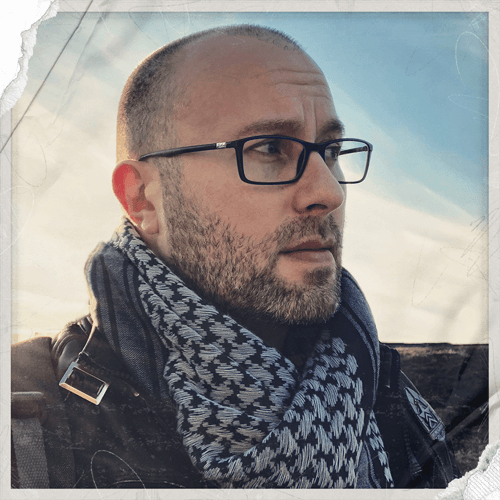
Adron Buske – Host & producer of FICTITIOUS — The Storytelling Craft of Science Fiction & Fantasy (indefinitely on hiatus). Podcast and YouTube channel featuring author interviews about writing craft. 80+ interviews plus live event programming.

pic by @jaceboechler
Elena Fernández Collins – Genderfluid podcast critic and reporter and a forensic sociolinguist living in Portland, OR. She curates a biweekly newsletter about audio fiction, Audio Dramatic and hosts the podcast Radio Drama Revival. She also covers the audio fiction podcast beat for The Bello Collective and is a contributor to The AV Club’s Podmass, among others.
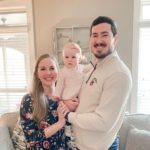
David Walters – Believer, Hubby, Girl Dad. Owner/CEO of FanFiAddict. Works a not so flashy day job in central Alabama. Furthest thing from a redneck and doesn’t say Roll Tide. Enjoys fantasy, science fiction, horror and thrillers but not much else (especially kissy kissy).

Cameron Johnston – British Fantasy Award and Dragon Awards nominated author of dark fantasy novels The Traitor God and God of Broken Things. He is a swordsman, a gamer, and an enthusiast of archaeology, history and mythology. He loves exploring ancient sites and camping out under the stars by a roaring fire.

Daniel Greene – The Goblin.
His Linktree has all the places you can find him and his work.
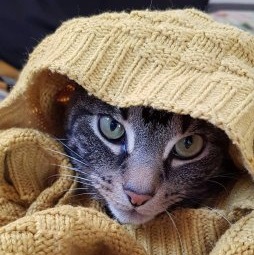
Peat – The person responsible for spouting the guff you’ve presumably read at Peat Long’s Blog. Or maybe you are smart and haven’t. He doesn’t like photos of himself, so uses one of his cat, who’s a charming little savage indeed.
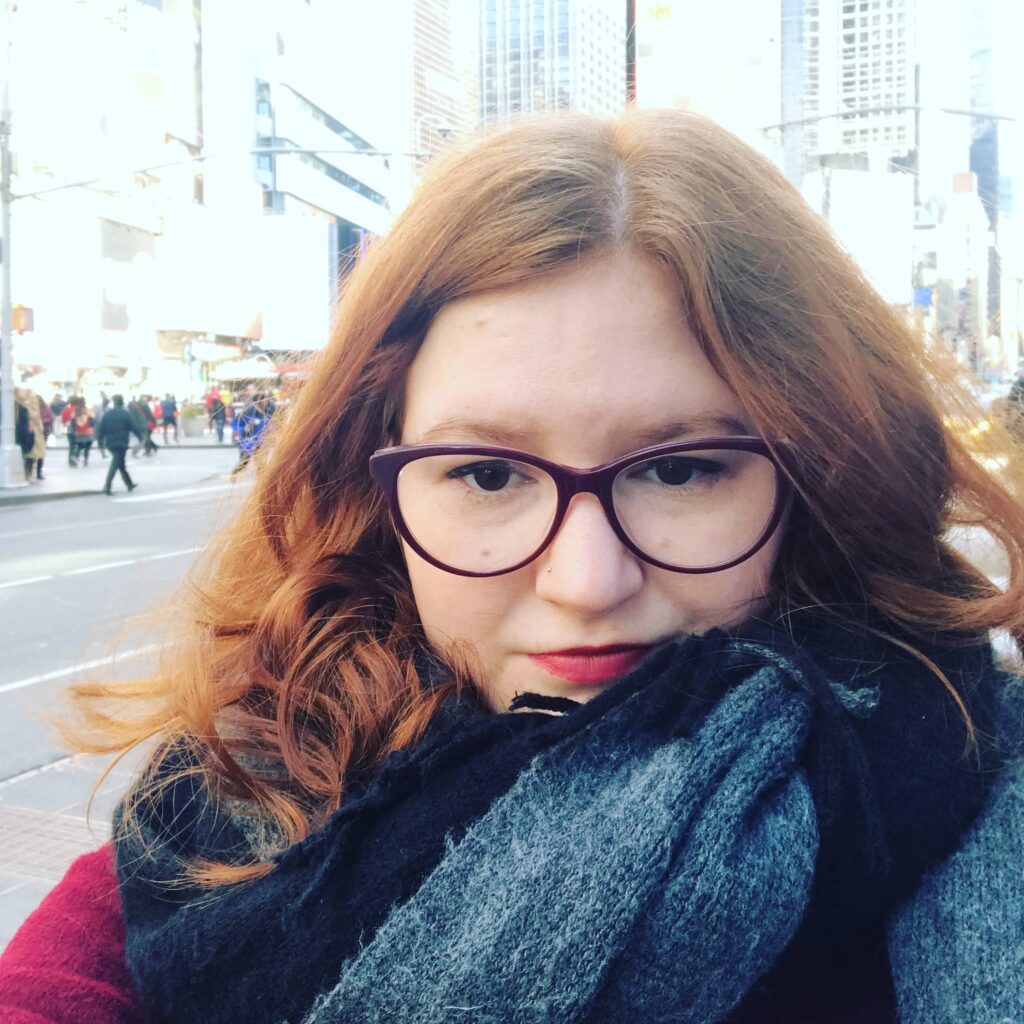
Fabienne Schwizer – The nerd behind the Libri Draconis blog and reviewer at Grimdark Magazine. Now an assistant editor at Tor Books! Most of her life revolves around words, be that reading, writing, or editing. You can find as @FLSchwizer on Twitter, and @libri_draconis on Instagram. If you’re curious about what she is currently reading, check out www.goodreads.com/libridraconis.

Jared Shurin – Editor or co-editor of over two dozen anthologies of original fiction, including The Djinn Falls in Love, The Lowest Heaven, The Book of the Dead, and The Outcast Hours. He is the co-founder and editor of the award-winning pop culture website Pornokitsch and the not-for-profit publishing house Jurassic London. He has been a finalist for the World Fantasy, Shirley Jackson, Locus and Hugo Awards, and he has twice won the British Fantasy Award.
Find Jared online as @straycarnivore on Twitter, or check out the Best of British Fantasy Website.
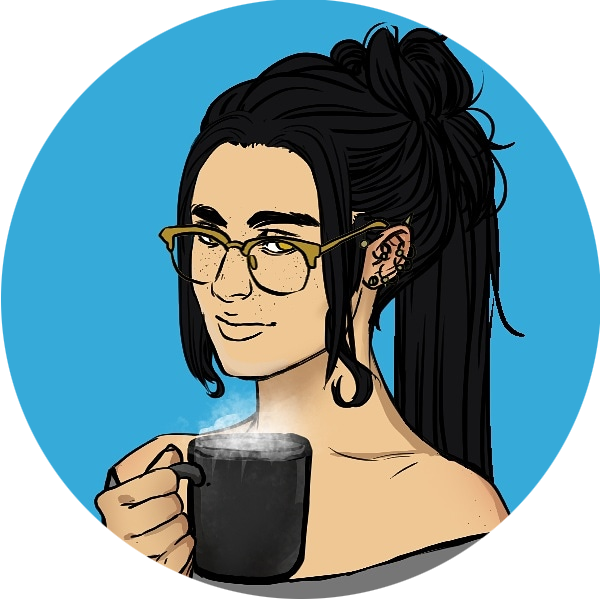
Arina – A speculative fiction devotee and an avid advocate for politics and mega robots in stories. She’s a techie with a passion for self-published, indie, and inclusive lit. When not reading, they can be found delving into cultural history and grumpily grumbling at their loud, early-riser of a cat.
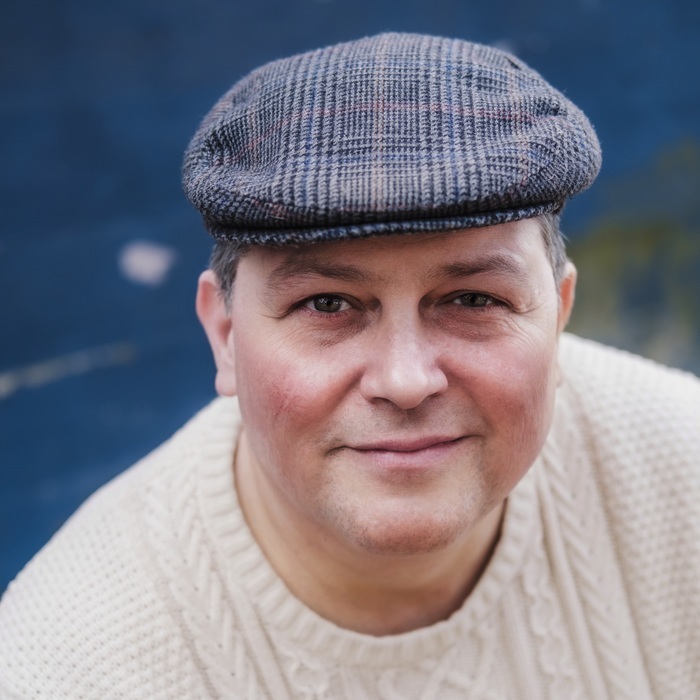
Tony Russo – Throughout his journalism career, Tony produced podcasts on beer, local news, and writing. He began producing independent shows in 2007 and in 2017 left local journalism to host This Is War, a narrative podcast about the combat veteran experience. He investigated Sherry Shriner’s Christian doomsday cult, which resulted in Dragged Into the Light: Truthers, Reptilians, Super Soldiers and Death Inside an Online Cult.

Devin Madson – Aurealis Award-winning Australian fantasy author of The Reborn Empire series from Orbit Books. After some sucky teenage years, Devin gave up reality and is now a dual-wielding rogue who works through every tiny side-quest and always ends up too over-powered for the final boss. Anything but zen, Devin subsists on tea and chocolate and so much fried zucchini Devin ought to have turned into one by now. Devin’s fantasy novels come in all shades of grey and are populated with characters of questionable morals and a liking for witty banter.

Melissa Caruso – Author of the complete Swords and Fire trilogy, beginning with The Tethered Mage. Her new trilogy, Rooks and Ruin, begins with THE OBSIDIAN TOWER (Orbit, 2020) and will continue in 2021 and 2022. Melissa is a fantasy writer, tea drinker, larper, mom, and all-around geek. Despite being born on the summer solstice and going to school in an old mansion with a secret door, she has yet to develop any known superpowers. She lives in Massachusetts with her video game designer husband and two superlative daughters, and has been known to do battle in ballgowns.
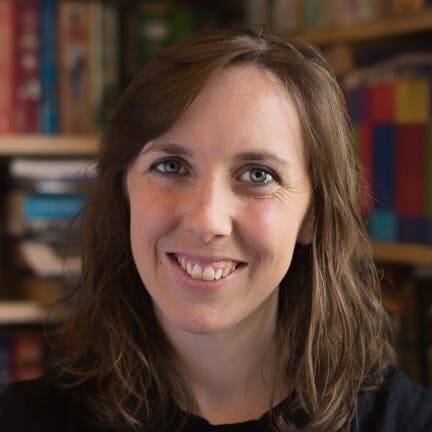
Sam Hawke – Sam Hawke considered several careers (including zookeeper) before choosing law, getting a black belt in jujitsu and starting writing. She grew up and still lives in Canberra, Australia, where she and her husband are currently raising two small ninjas and two idiot dogs.
You can find Sam on Twitter, Instagram, Facebook, or at her website https://samhawkewrites.com.
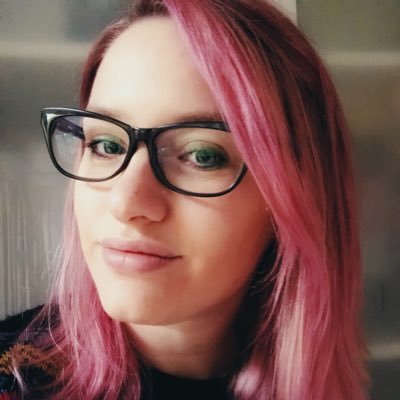
Megan Leigh is the head honcho at Pop Verse, fiction writer, and avid pop culture consumer. She’s also one third of the Breaking the Glass Slipper podcast. Follow her on twitter as @m_leigh_g.
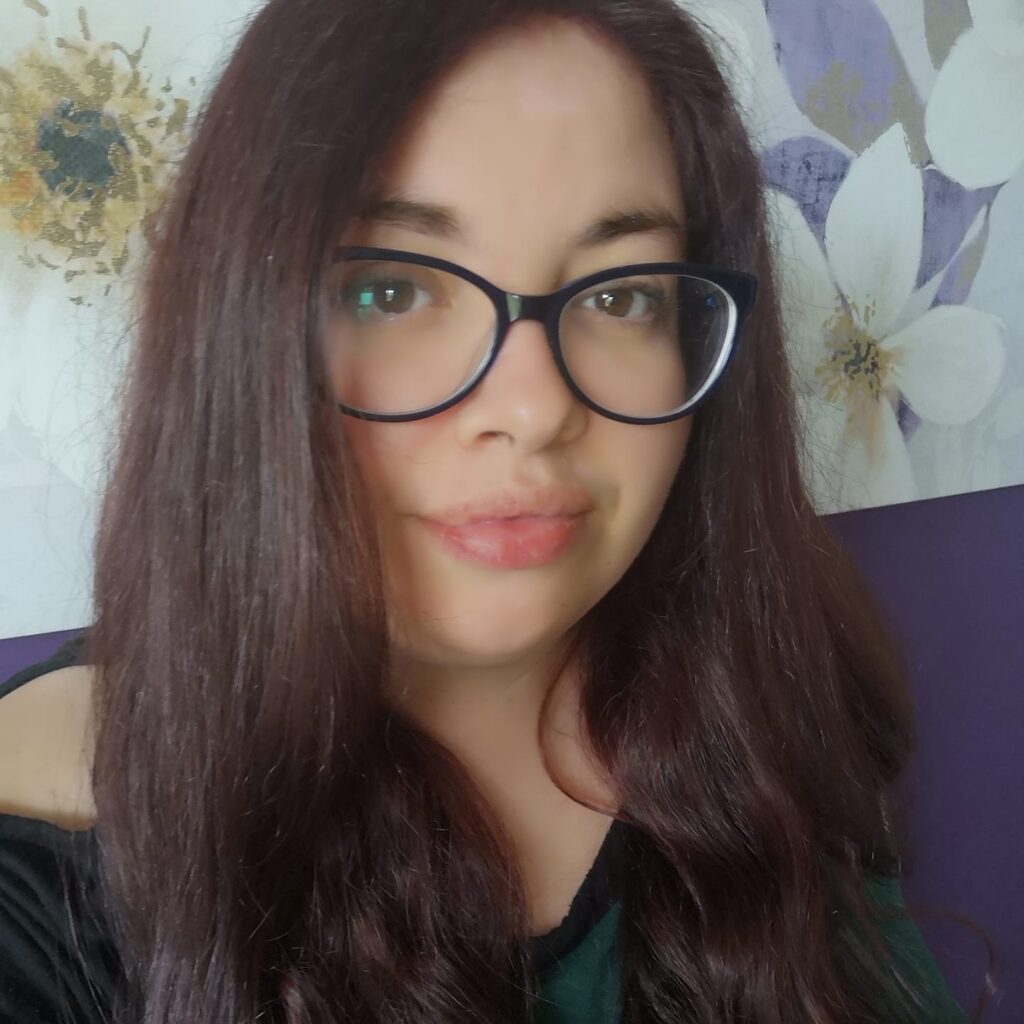
Bethan May lives on the South West coast of Wales, juggling editing, reading, writing and parenting. Surrounded by rugged coastline, dramatic castles and rolling countryside, Beth loves nothing more than shutting her door on all that and curling up with a cuppa and a book instead.
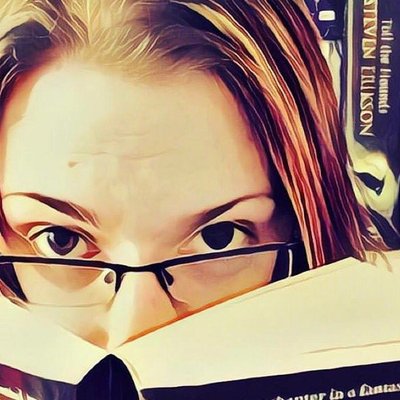
Laura M. Hughes is a freelance editor and fantasy writer living in the north of England. Her short fiction has appeared in anthologies such as Lost Lore, Art of War, and the Stabby Award-winning Heroes Wanted.
Her first novel, God of Gnomes, released in 2019 (written as Demi Harper). Right now she and Luke Chmilenko are co-writing the first book in a brand-new Norse progression fantasy series scheduled for release in 2022, tentatively titled Nine Worlds and optimistically described as “God of War meets Cradle.”
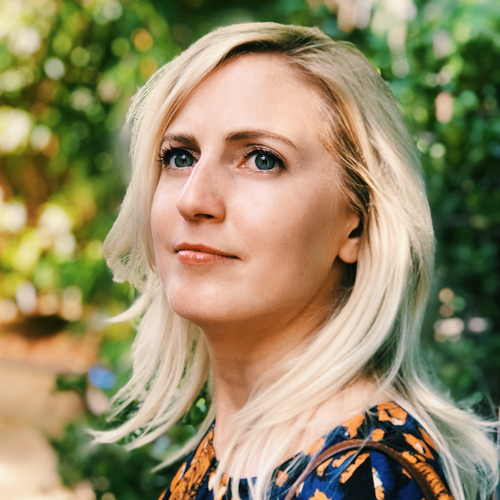
Sarah Enni is an author, podcaster, and journalist who lives in Los Angeles. Her debut young adult novel, Tell Me Everything, was released by Scholastic in 2019. You can read her short story, “The Blessing of Little Wants,” in the New York Times best-selling villain anthology, Because You Love To Hate Me, out now. She created and hosts the First Draft podcast, as well as the Track Changes podcast miniseries.
